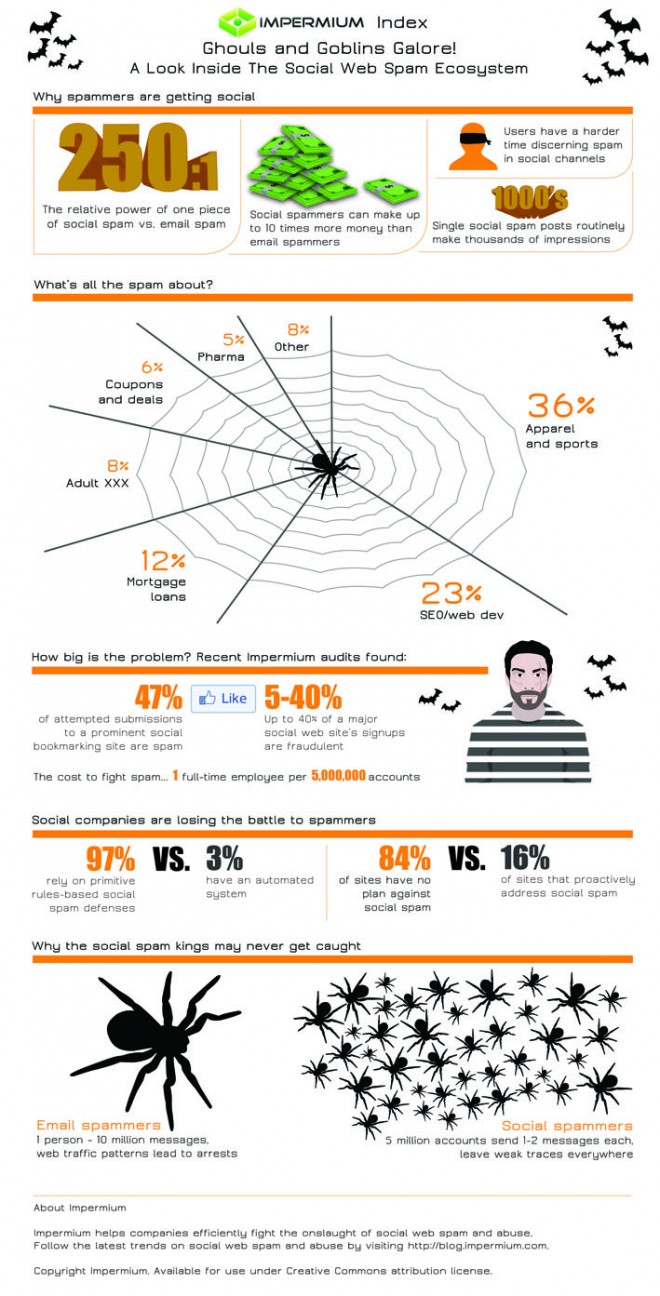INFOGRAPHIC: Websites Struggling To Block Social Spam

For almost as long as Facebook and other social networking services have been around, spam has been a problem for them. There are more than a few reasons why spammers prefer to target Facebook users than email accounts, as one piece of spam sent through social networking services is 250 times as impactful as a piece of spam that’s sent via email.
That’s just one fascinating social spam stat that’s revealed in a new infographic published by Impermium. The infographic, which has a timely Halloween theme, claims that spammers who send spam messages through social networking services can make up to 10 times more cash than email spammers as social networking users often find it more difficult to distinguish spam from legitimate messages.
Since a user’s Facebook Wall is seen by all of their friends (and perhaps even more people if their Wall is publicly visible), posting a spam message there may lead to thousands of impressions, rather than the single impression that’s made by sending a spam message to an email address. It takes one full-time employee to combat spam on 5 million social networking accounts.
Of course, spam email filters have become more intelligent in recent years, meaning that spam messages may not always get through to the intended target. Another reason why spammers are targeting social networking users is that it is more difficult for authorities to catch them in the act.
Of more than 200 website managers and owners that Impermium surveyed, 84 percent have no plan to tackle social spam, while just 3 percent of those companies are tackling the social spam problem by using more powerful automated systems, rather than older rule-based defenses.
Check out more interesting stats about social spam in the infographic, which you can click to enlarge.














If all of that is true, then great. Of course, that remains to be seen.
But at least we’re on the verge of taking a small step in the right
direction.
I think it’s generally a bad idea to trust information from “The Wonk Room.”
http://ryanbaxter.livejournal.com